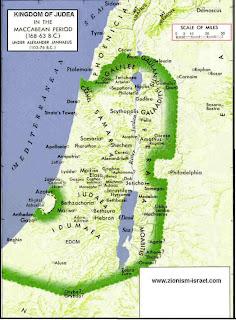Royal Priesthood, Holy Nation Acts
1:6
Curiosity Killed the Cat
by
Robert T. Cooper
In 2009 I
spent nearly the entire year preaching through the book of Revelation. The
congregation wanted to do it again. After prayer, I decided that if I was going
to preach through it again, I would do so in more depth. So I spent nearly all
of 2010 – 2011 preaching through it a second time.
I first became
aware of Revelation in the mid-1960’s when my mother listened to programs on
the subject on the radio. When I was in college the big book was Hal Lindsey’s The Late Great Planet Earth. In seminary
I spent some time examining the various -isms of interpretation of Revelation. In
more recent days we have had the Left
Behind series of books and related materials. And so on until just
yesterday a Facebook friend said she was reading through the book of
Revelation.
Folks are
simply curious about what the future holds. We cry out, “Maranatha! Lord, come
quickly!” In many ways we are anxious for the fullness of Christ’s reign to
come.
The Twelve (or
in this case, the Eleven) were like that. Their culture had driven into their
minds the expectation that the Messiah would conquer the Romans and bring back
into existence an independent Jewish state such as during the Maccabean period.
Perhaps it was the realization that Jesus had no intention of doing so, at
least not immediately, that drove Judas to betray Him. Yet after the
Resurrection the Eleven were back to their earlier expectation of a literal
earthly Kingdom with Jesus as monarch.
It is an
issue. Whether it be the Millennial Kingdom or the Eternal State that comes
next in history, we want to know, “Lord, are you at this time going to restore
the kingdom?”
When I was a
child there was a cartoon called “Peeping Penguins.” I had forgotten the
cartoon featured penguins, but I did remember all these years later the song
sung by the mother, “Curiosity Killed the Cat.”
Perhaps having
an interest in whether Christ will establish His Kingdom in the near future
will not necessarily kill a disciple. Yet a person can become so fixated on the
Doctrine of Last Things that one is not very well tuned into living for Jesus
today or into the real-life ministry needs of those around us. I was once in a
store in which an Adventist tried to engage me in conversation. All he wanted
to talk about was Last Things. I had other things I wanted to discuss.
Indeed, as we
will see, Jesus had something else He wanted to talk to the Eleven about before
His Ascension. He wanted to talk about getting the lost into His spiritual
Kingdom.
But God is
like that. There will be plenty of time to think about whatever physical
Kingdom will be established at the time of its establishment. Meanwhile, let us
be faithful to the task of living for Jesus and ministering to people in this
moment.
Questions: What proportion of
your time do you spend contemplating Last Things? What would Jesus rather you
be doing with at least some of your time? Will you start living according to
His agenda for your life?






